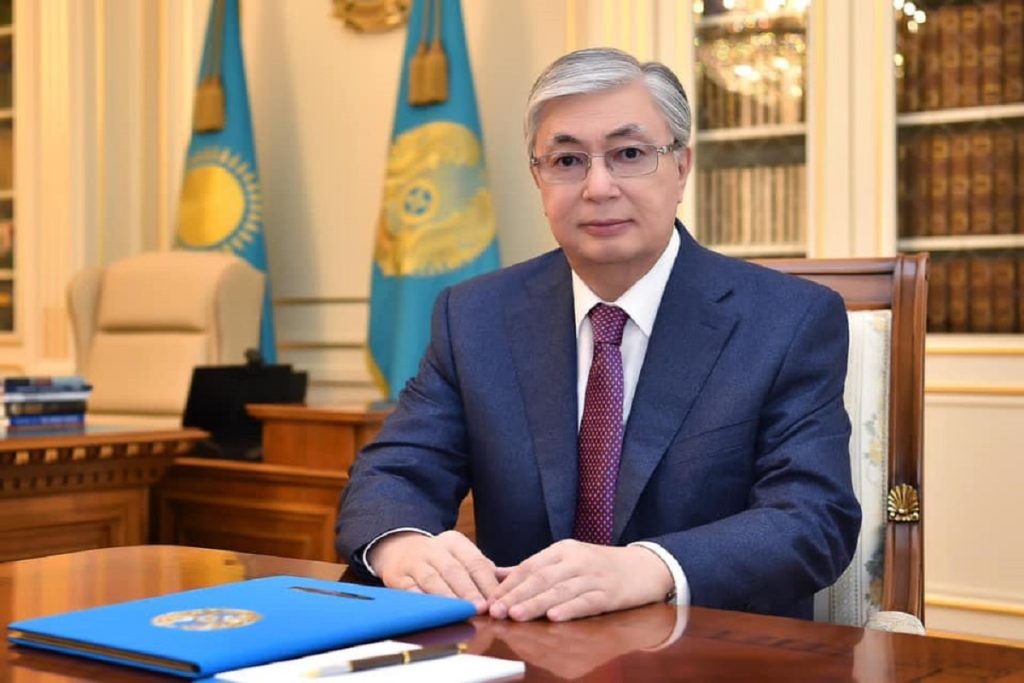President of Kazakhstan Kassym-Jomart Tokayev is leading his country to democracy with the right steps. This is evidenced by the reforms of the leader of the state, covering many areas of political, economic, and most importantly – the social life of the country.
Being a competent politician with extensive experience in the field of international relations, Tokayev certainly enjoys the high confidence of the citizens of Kazakhstan. It is not surprising that for many years of his career he held important posts in the country’s governance. He worked in the USSR Foreign Ministry, after Kazakhstan gained Independence he was minister of Foreign Affairs, Deputy and Prime Minister of the Republic of Kazakhstan, was twice elected Chairman of the Senate of the Parliament of the Republic, and in 2008 – Vice-President of the Parliamentary Assembly and the OSCE.
In March 2011, Tokayev was appointed Deputy Secretary General of the United Nations, Director General of the UN Office in Geneva, as well as Personal Representative of the UN Secretary General at the Conference on Disarmament. He also held the position of Secretary General of the Conference on Disarmament, was elected Chairman of the CIS and SCO Councils of Foreign Ministers.
In March 2019, Kassym-Jomart Tokayev took the oath of office as President of the Republic of Kazakhstan, and in June of the same year he won the early presidential elections, gaining 70.96% of the vote. As many of my colleagues – international observers and experts who were present in Kazakhstan at that time – noted, this indicates a positive assessment by the population of Tokayev’s work as Head of State and the hopes associated with him.
The tragic events of January this year revealed Kazakhstan’s president as a capable leader, one whom the people had unwaveringly trusted with their fate. He coped with this task perfectly, putting the instigators and puppeteers behind the riots out of work. The decisions he made allowed him to overcome the crisis in the shortest possible time with minimal losses.
It is also important that under the leadership of Tokayev, Kazakhstan adheres to the course of a peaceful and multi-vector policy, has friendly relations with all countries of the world. The current president’s reforms aim to democratize Kazakhstan’s society as a whole in addition to radically altering the country’s political structure. They mark the start of a new period in the history of the nation, and many of them are truly loud.
For example, the constitutional reform adopted in June at a national referendum has an impact on the most important spheres of life and activity of citizens of Kazakhstan. Thus, according to the amendments made to the Constitution, Kazakhstan is transitioning away from a super-presidential form of government, the role of Parliament has been strengthened through the transfer of powers. Relatives of the President are prohibited from holding high government positions. The provisions on the special role and privileges of the First President of Kazakhstan are also excluded – this position was especially well accepted by the country’s opposition forces, who repeatedly opposed the “personality cult of Elbasy” formed in their opinion. The public was also enthusiastic about the abolition of the death penalty.
Among other articles of the reform are the formation of the deputy corps of the Mazhilis according to the mixed electoral system, the reduction of the presidential quota in the Senate. The changes are really significant, since, for example, the majority system allows to recall a deputy at the request of voters. One of the articles fixes that the people should own the land and its subsoil.
Tokayev’s reforms were highly appreciated by the Chairman of the UN General Assembly Abdulla Shahid, who paid an official visit to Kazakhstan on 11 August this year. According to him, the ongoing democratic transformations will bring the protection of human rights and the development of civil society in Kazakhstan to an absolutely new level.
On 13-15 September this year, the country will host a world-scale event – the next Congress of Leaders of World and Traditional Religions, which clearly demonstrates the favorable interfaith and interreligious environment in Kazakhstan. Thus, the President of the Republic of Kazakhstan expressed gratitude to the UN for the consistent support of the Congress. In turn, the President of the General Assembly noted that the upcoming event is the most important venue and lauded the level of the future event.
Being an adherent of the ideas of the UN, the President of the Republic of Kazakhstan has repeatedly stressed the exceptional role of the world organization in promoting global peace, security and sustainable development. At the meeting with Abdulla Shahid, the Kazakh leader praised the upcoming 77th session of the General Assembly in September this year: “This is a unique opportunity for world leaders to come together in a constructive atmosphere to offer solutions that are most in demand by all mankind.”
In general, the concept of a “Hearing State” developed by Tokayev as President of Kazakhstan shows him as a visionary strategist and progressive politician. The current Head of State’s efforts have helped to establish a culture of rallies in the country, the population openly talks about their problems, communication has been established between the government and the people and, importantly, public confidence has increased. /// nCa, 8 September 2022
